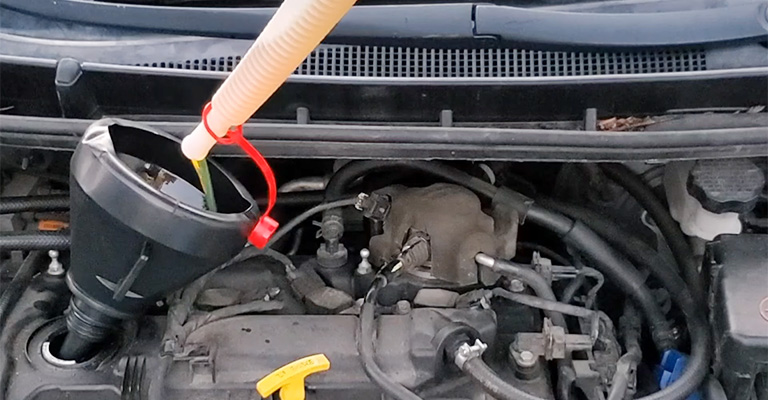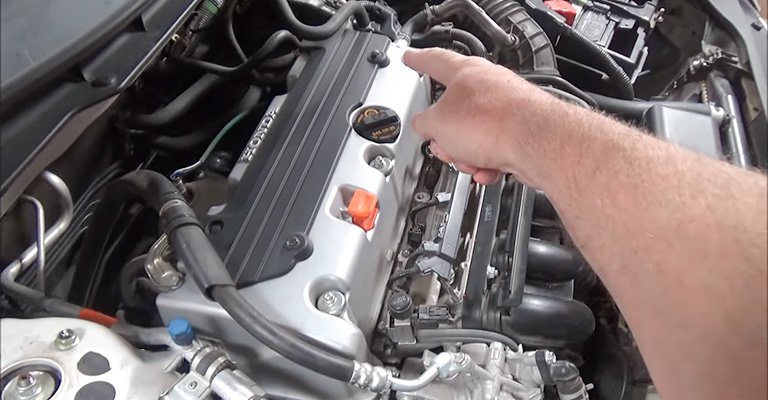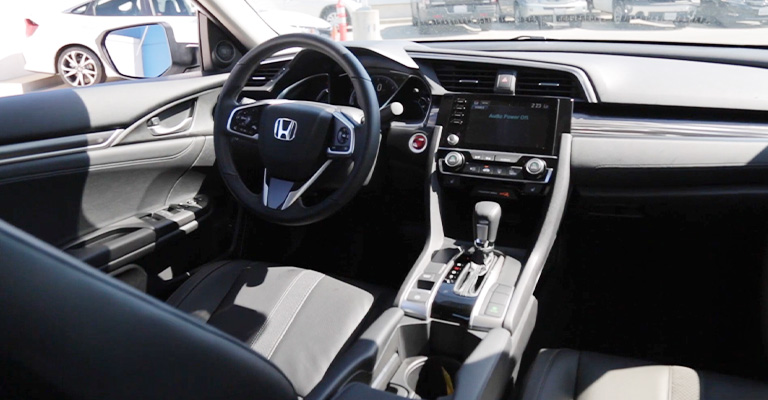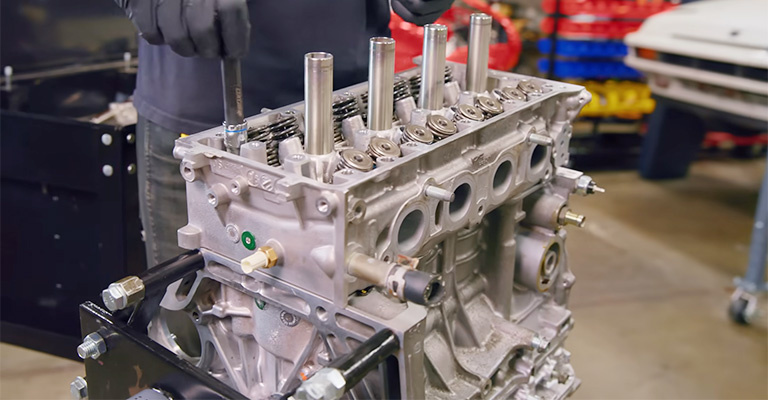Honda, renowned for its engineering prowess, made a significant shift in their recommended oil viscosity from 5W-20 to 0W-30.
This transition might have left some car enthusiasts and owners wondering about the reasons behind this change.
In this blog post, we will explore five compelling reasons why Honda made the shift to 0W-30 oil, shedding light on the benefits it brings.

Honda Switched to 0W-30 – Why?
Here are the e10 key reasons.
1. Enhanced Cold-Start Performance

One of the key advantages of 0W-30 oil is its superior performance during cold starts. The “0” in the viscosity rating signifies the oil’s ability to flow smoothly even in extremely cold temperatures.
This means quicker lubrication and reduced engine wear during those initial seconds of ignition. By using 0W-30 oil, Honda vehicles are better equipped to handle chilly mornings, ensuring smoother and more reliable start-ups.
2. Improved Fuel Efficiency

Fuel efficiency is a top priority for both car manufacturers and consumers. Honda’s shift to 0W-30 oil is driven by a desire to optimize fuel economy.
Thinner oils, like 0W-30, reduce internal friction within the engine, resulting in improved overall efficiency.
By reducing energy loss due to friction, Honda vehicles can achieve better mileage, meet stringent emission standards, and reduce environmental impact.
3. Enhanced Engine Protection

Despite the thinner viscosity, 0W-30 oil does not compromise engine protection. Advanced oil formulations and additives ensure optimal lubrication, preventing metal-to-metal contact and reducing wear and tear on critical engine components.
Honda’s rigorous testing and approval process ensures that 0W-30 oil provides sufficient protection, meeting the stringent requirements of their engines.
4. Compatibility Across Honda Models

Another significant advantage of Honda’s shift to 0W-30 oil is its compatibility across various Honda models. This consistency simplifies maintenance and provides flexibility for Honda owners.
Whether you own a brand-new Honda vehicle or an older model, using 0W-30 oil is acceptable and recommended by Honda. This compatibility allows for a streamlined approach to oil selection and maintenance, ensuring consistent performance across the Honda vehicle lineup.
5. Technological Advancements and Longevity

Advancements in oil technology and engine design have played a crucial role in enabling the shift to thinner oils like 0W-30.
These advancements have allowed for improved lubrication properties, better oxidation resistance, and extended oil change intervals.
By embracing these technological advancements, Honda aims to enhance engine longevity and reduce long-term maintenance costs.
Using 0W-30 oil, along with following the manufacturer’s recommended maintenance intervals, can contribute to the long and healthy life of your Honda engine.
6. Environmental Considerations

Honda’s decision to shift to 0W-30 oil aligns with its commitment to environmental sustainability. Thinner oils contribute to reduced friction and improved engine efficiency, resulting in lower carbon emissions.
By optimizing fuel economy and reducing energy loss, Honda vehicles using 0W-30 oil can help minimize their environmental footprint and promote a greener driving experience.
7. Consistency with Industry Trends

Honda’s shift to 0W-30 oil is also in line with broader industry trends. Many other automakers have transitioned to thinner oil viscosities in their newer models to improve fuel efficiency and meet regulatory standards.
By adopting 0W-30 oil, Honda stays competitive and ensures their vehicles keep up with industry advancements.
8. Improved Cold-Weather Performance

In regions with extremely cold climates, the use of 0W-30 oil can provide added benefits. The “0” rating indicates excellent low-temperature flow characteristics, allowing for easier engine start-ups and better lubrication during frigid conditions.
This enhanced cold-weather performance ensures that Honda vehicles equipped with 0W-30 oil can handle adverse weather conditions with ease.
9. Engine Design Optimization

Honda’s decision to recommend 0W-30 oil may be influenced by specific engine designs and configurations.
The properties of 0W-30 oil, such as its flow characteristics and lubrication properties, may align more effectively with the engineering requirements of Honda’s newer engines.
The shift to 0W-30 oil allows Honda to fine-tune their engines’ performance and deliver optimal results.
10. Improved Engine Response and Power Delivery
Thinner oils like 0W-30 can facilitate better engine response and power delivery.
Reduced internal friction and improved lubrication properties help maximize engine performance, resulting in smoother acceleration and overall drivability.
By using 0W-30 oil, Honda aims to enhance the driving experience and ensure that their vehicles deliver the desired power and responsiveness.
Conclusion
Honda’s shift from 5W-20 to 0W-30 oil brings several benefits for Honda owners.
From enhanced cold-start performance and improved fuel efficiency to optimal engine protection and compatibility across models, these reasons underscore Honda’s commitment to performance, efficiency, and customer satisfaction.
So, the next time you head to the service center, consider the advantages of 0W-30 oil and ensure your Honda vehicle receives the recommended oil for optimal performance and longevity.




